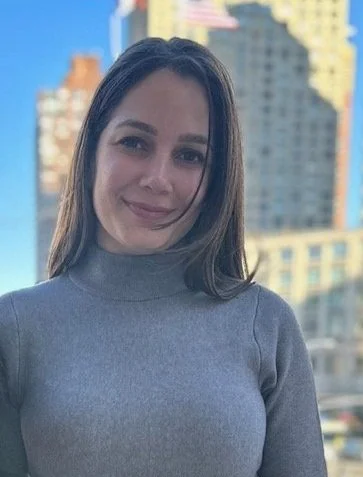Linda Shafie
Graduate Student Intern
Supervised by Tia Jennings
Struggling in life can feel like being caught in a storm without shelter. Every day feels heavier than the last, and even the simplest tasks become overwhelming. Your mind races with thoughts you can’t seem to quiet, cycling through past regrets, current challenges, and fears about the future.
There are moments when you feel stuck, as though you’re trapped in quicksand, fighting to move forward but sinking deeper instead. You may feel isolated, even in a room full of people, as if no one truly understands what you’re going through.
The hardest part can be the feeling of shame or guilt for struggling in the first place, as if needing help is a weakness. But deep down, you know something needs to change, and reaching out for support becomes not just an option but a necessity for healing and growth. It’s a hard truth to face, but it’s also the first step toward finding peace.
Growing up, I struggled deeply with anxiety and depression. There were days when even the simplest tasks felt overwhelming, and I often felt like I was navigating life alone. These experiences were challenging, but they taught me the importance of compassion, resilience, and the value of having someone to lean on.
As a therapist intern, I am deeply passionate about working with young adults. This stage of life is filled with major transitions, challenges, and opportunities
Growing up as an Arab American, my parents dismissed or minimized my mental health struggles, often because they were raised in environments where emotional well-being wasn’t openly discussed or prioritized. Many Arab parents, out of love and a desire to protect their children, may respond to mental health concerns with dismissal or downplay the severity, not out of neglect but because of cultural conditioning and lack of awareness.
They would say things like “You’re overreacting,” or, “There’s nothing wrong with you; you just need to pray/work harder.” This dismissal could have been their way of trying to motivate or encourage me, even if it came across as invalidating.
If you’ve chosen to seek therapy or address your mental health needs as an adult, you’re breaking cycles and creating space for healing in ways your parents might not have had the opportunity to.
This understanding fuels my passion for advocating mental health awareness and creating safe spaces for honest dialogue. I believe that breaking the stigma requires empathy, education, and normalizing the conversation, especially in communities where it’s most needed.
Through my own journey of healing, whether it was through therapy, self-reflection, or the support of loved ones, I discovered the profound impact that a caring, understanding individual can have. Those who took the time to listen, to guide me, and to show me that I wasn’t alone made all the difference.
It was during this time that I realized I wanted to be that person for others. I want to create a safe, supportive space where people feel seen and heard, where they can work through their struggles and rediscover their strength. Becoming a therapist feels like the most meaningful way I can give back, using my own experiences to connect with others and help them on their path to healing.

